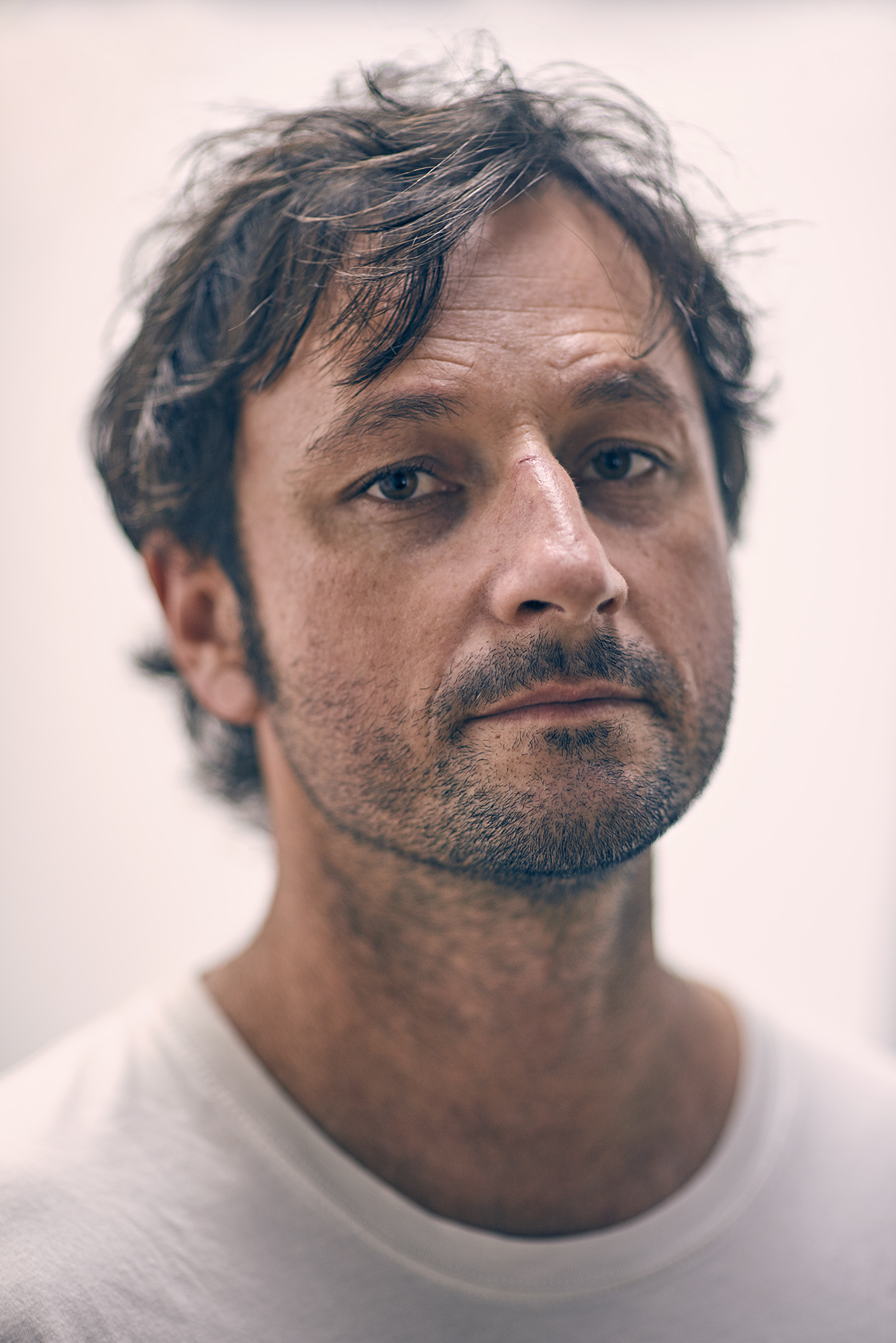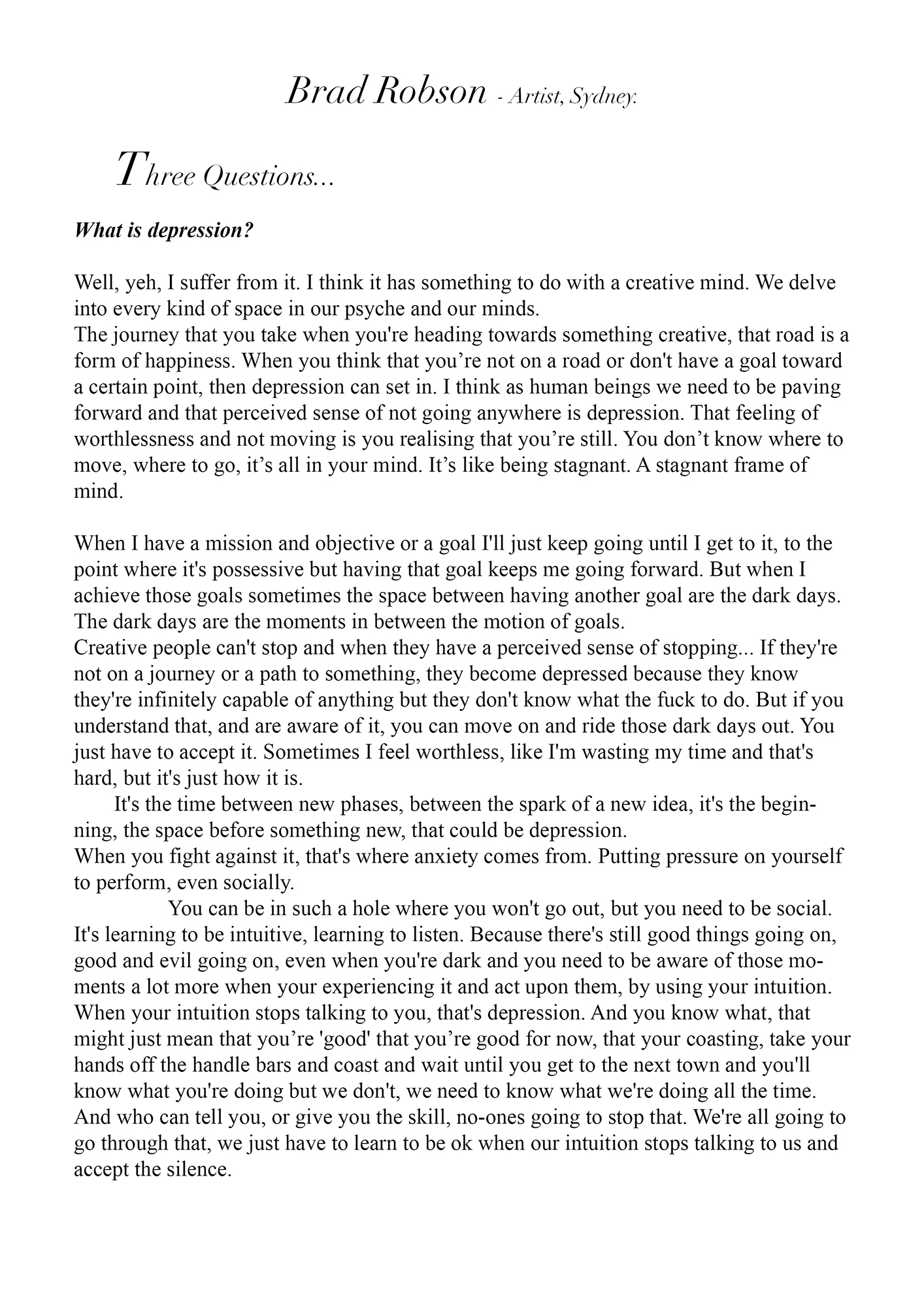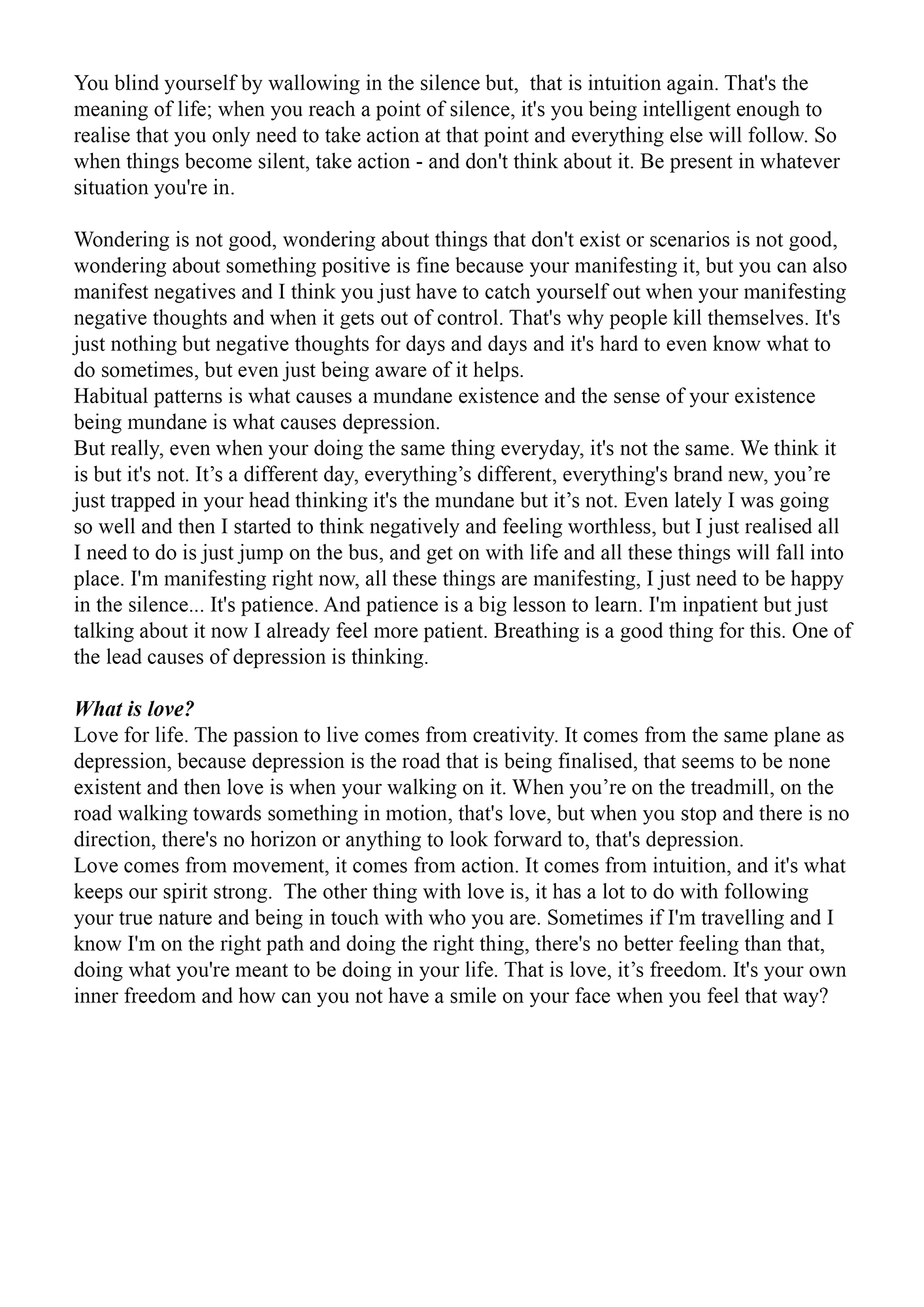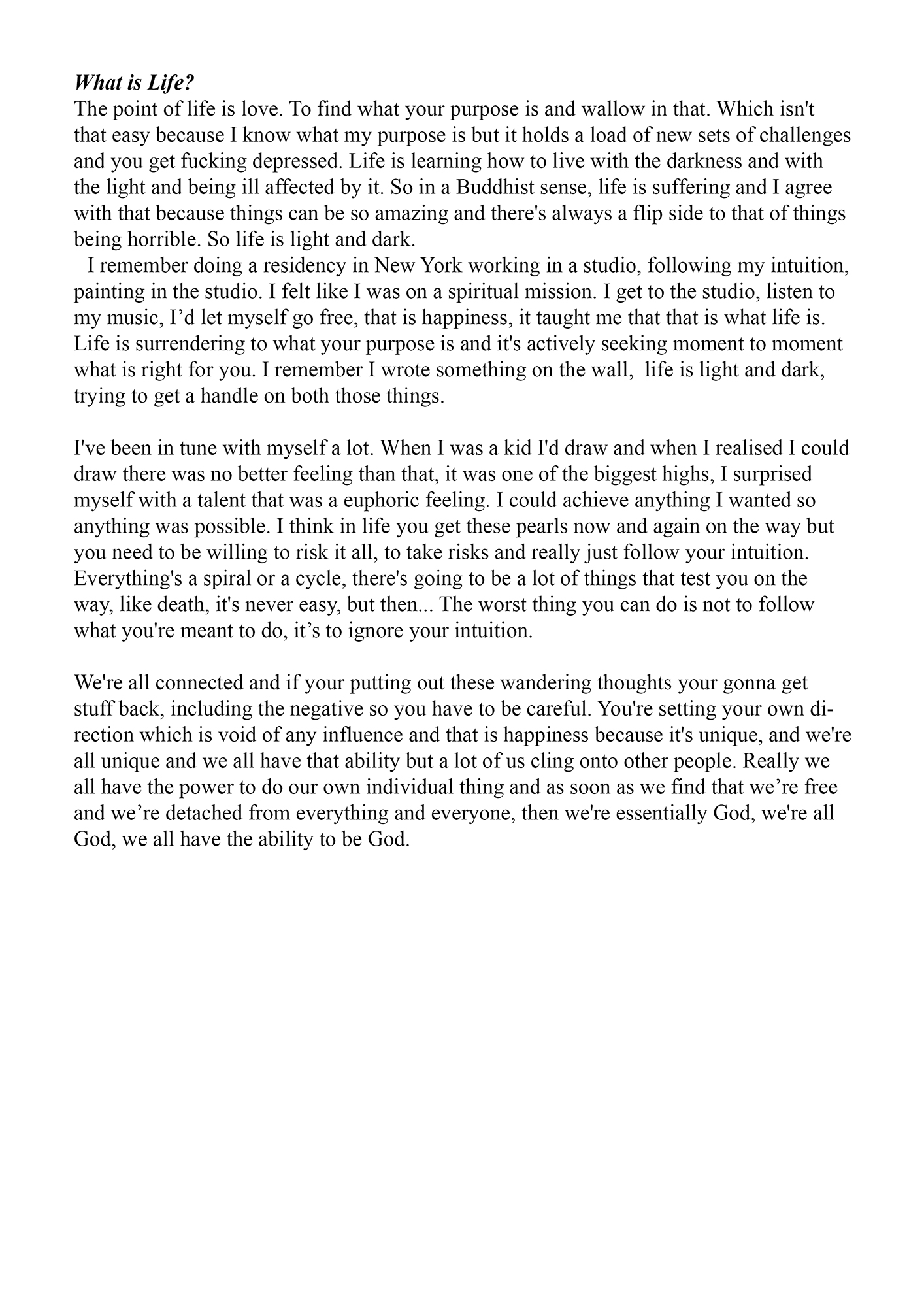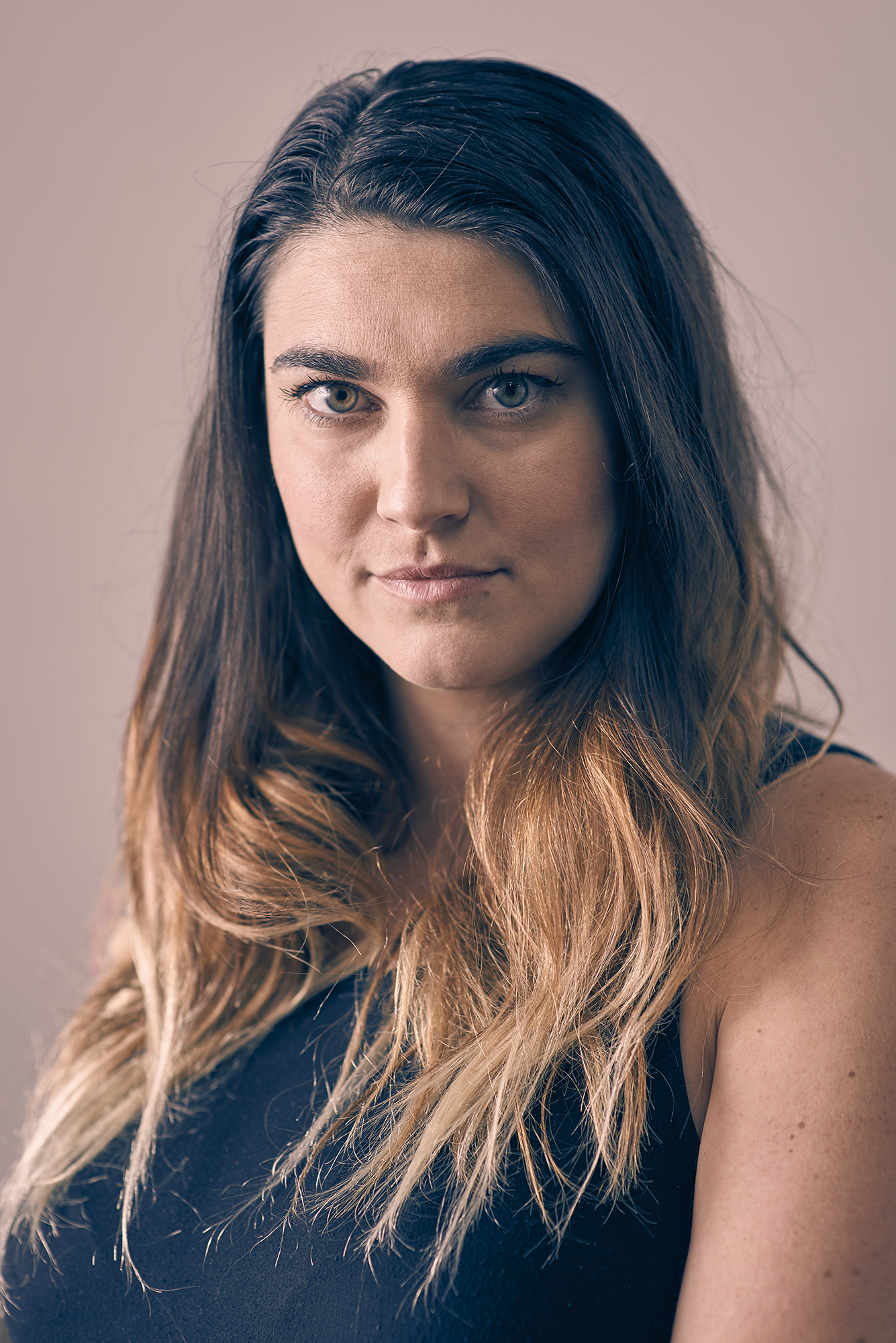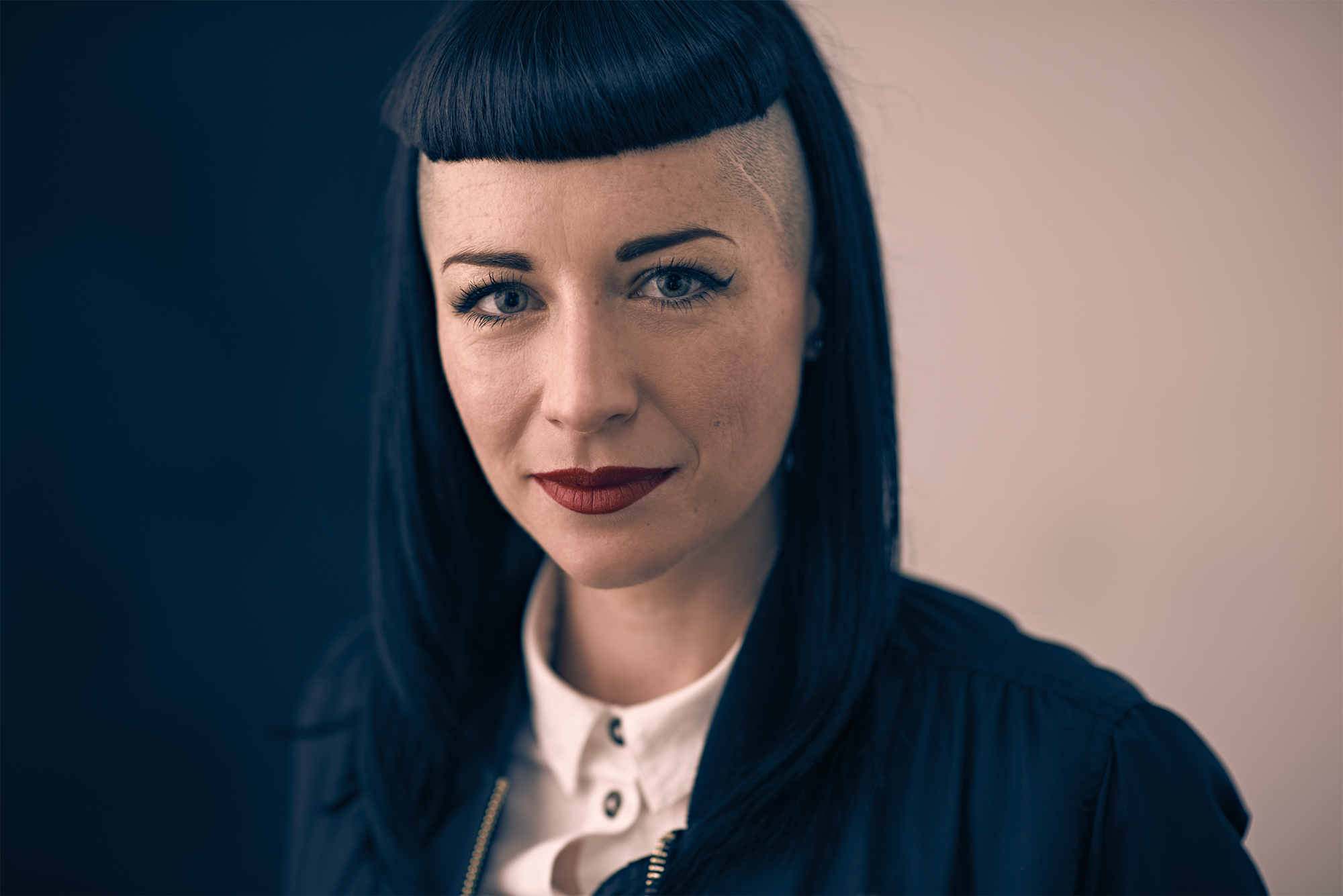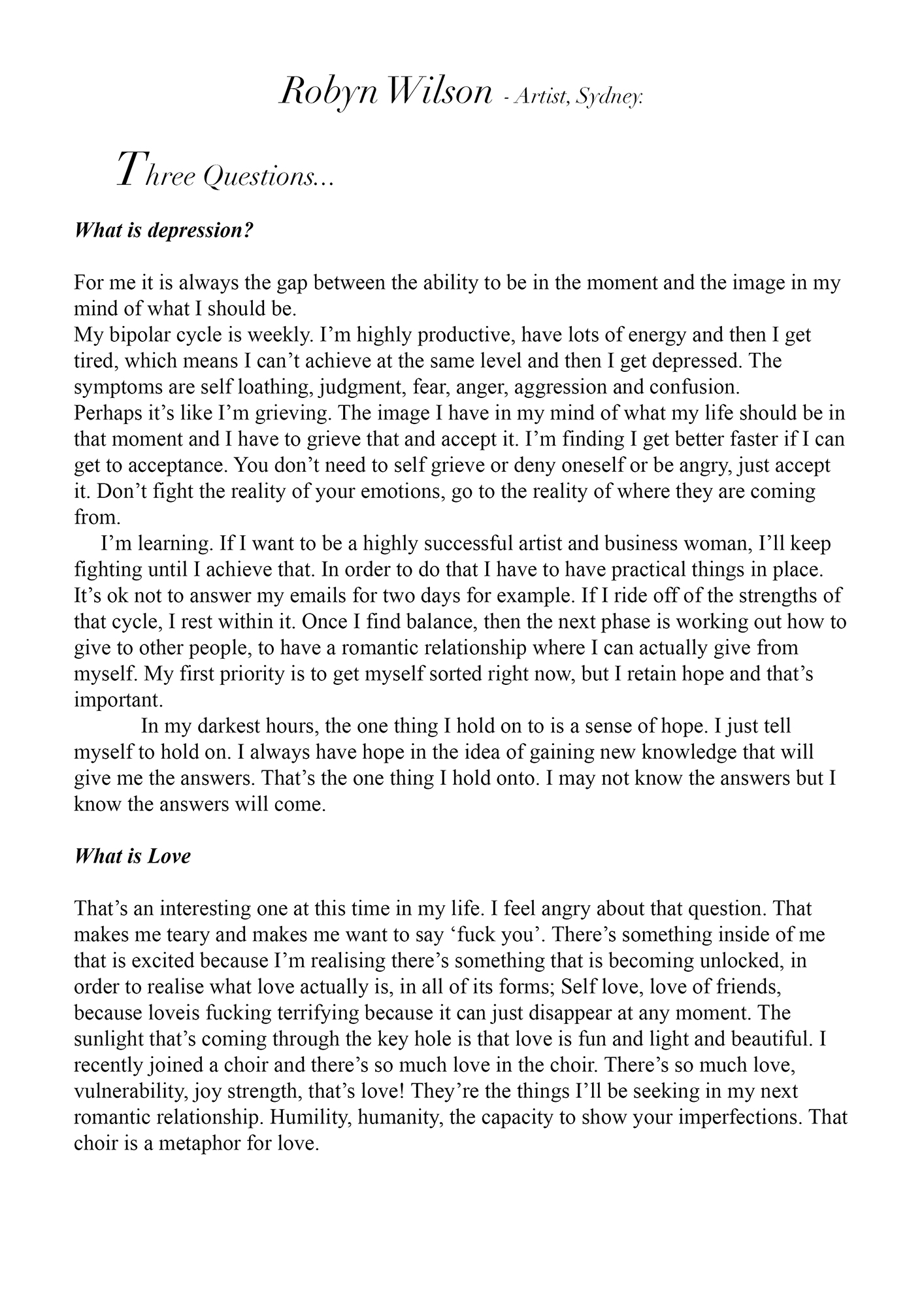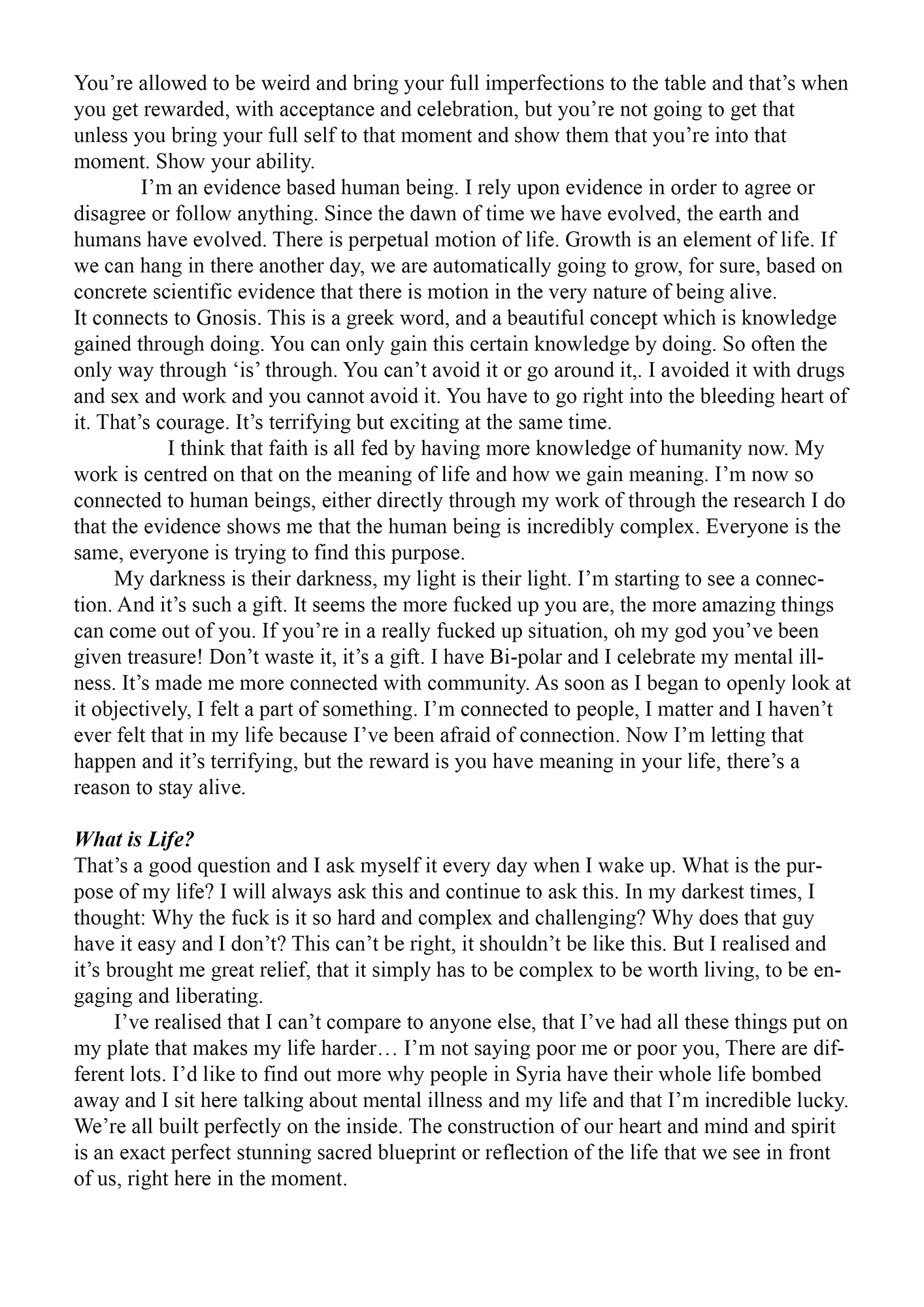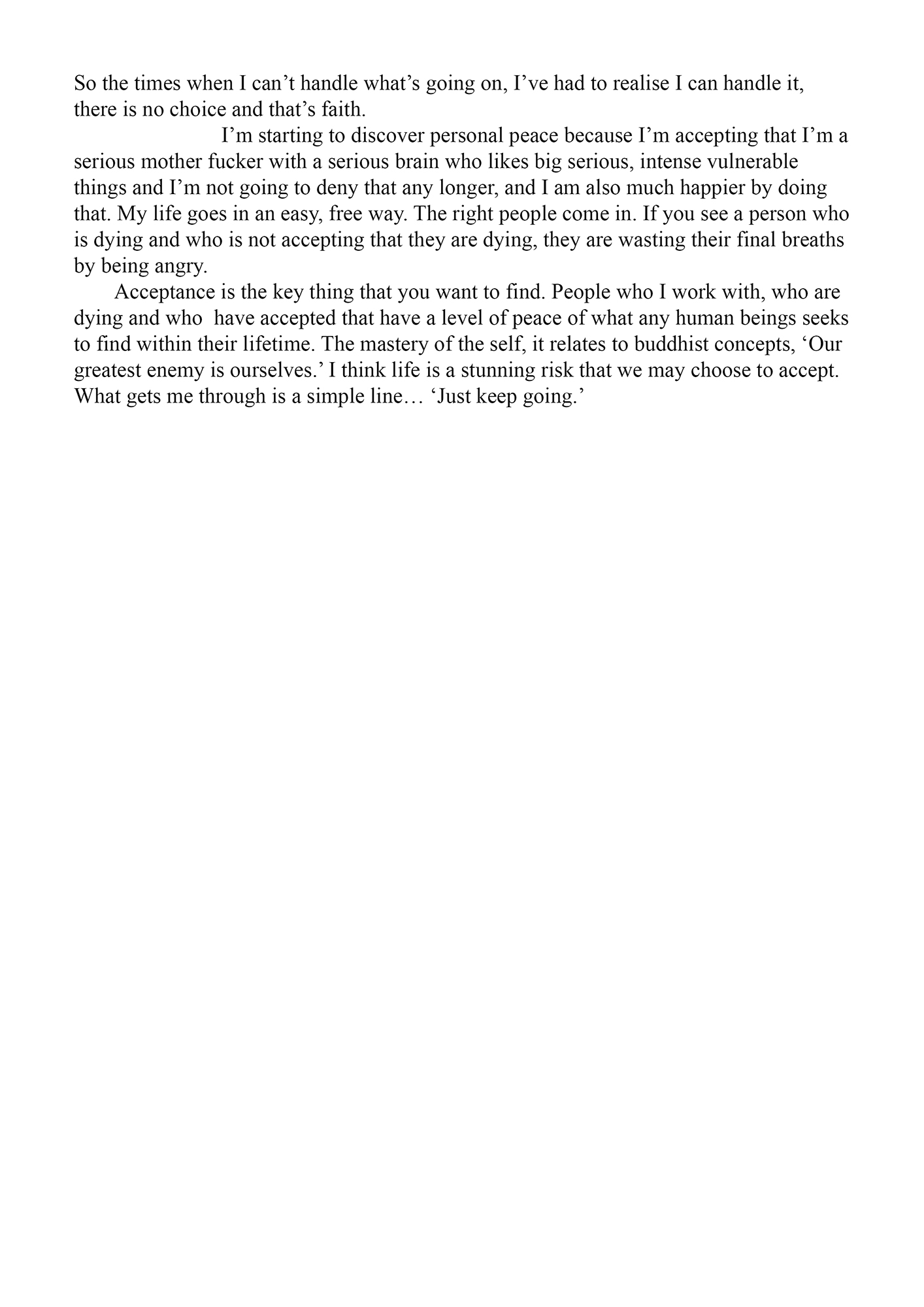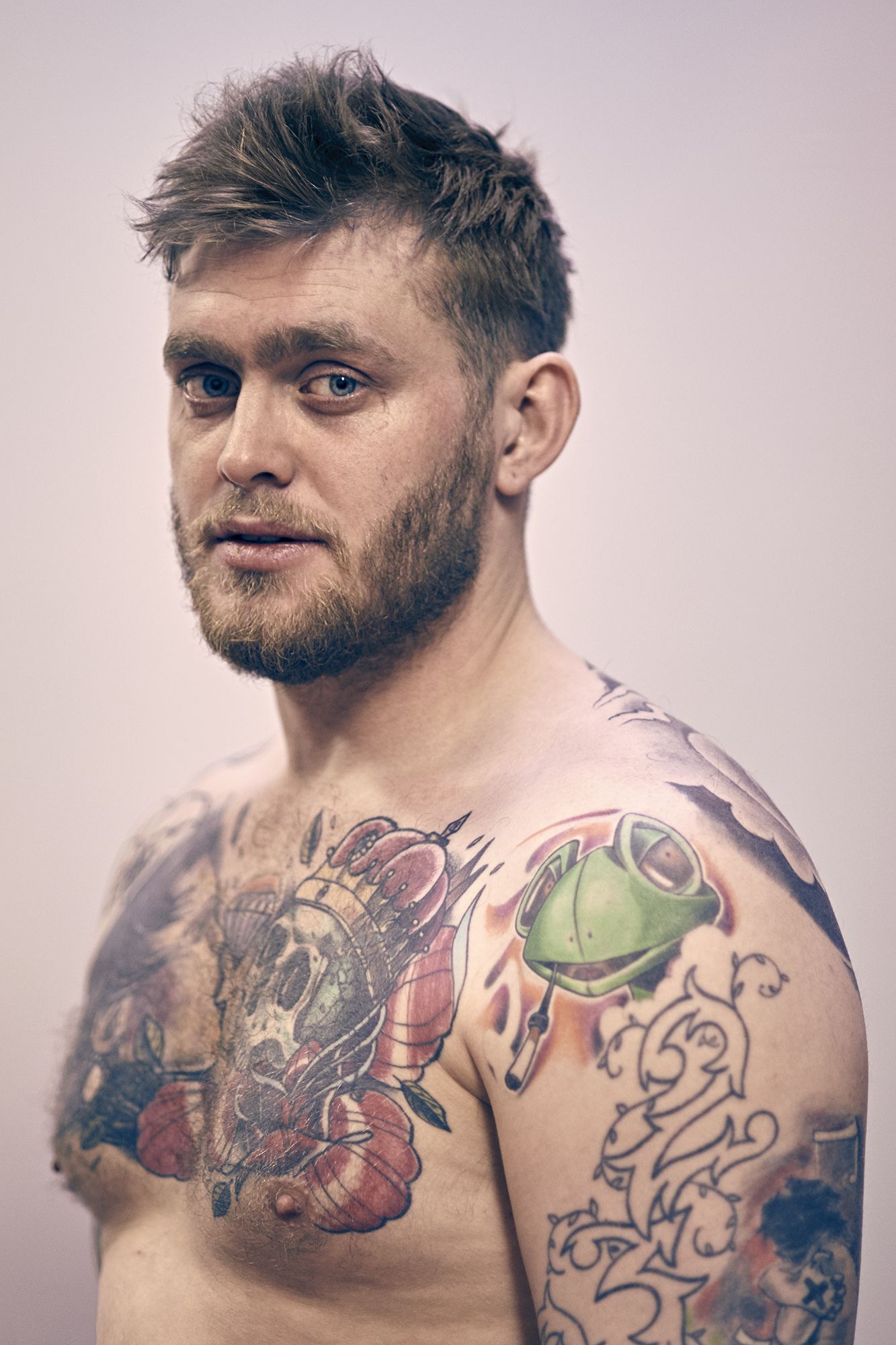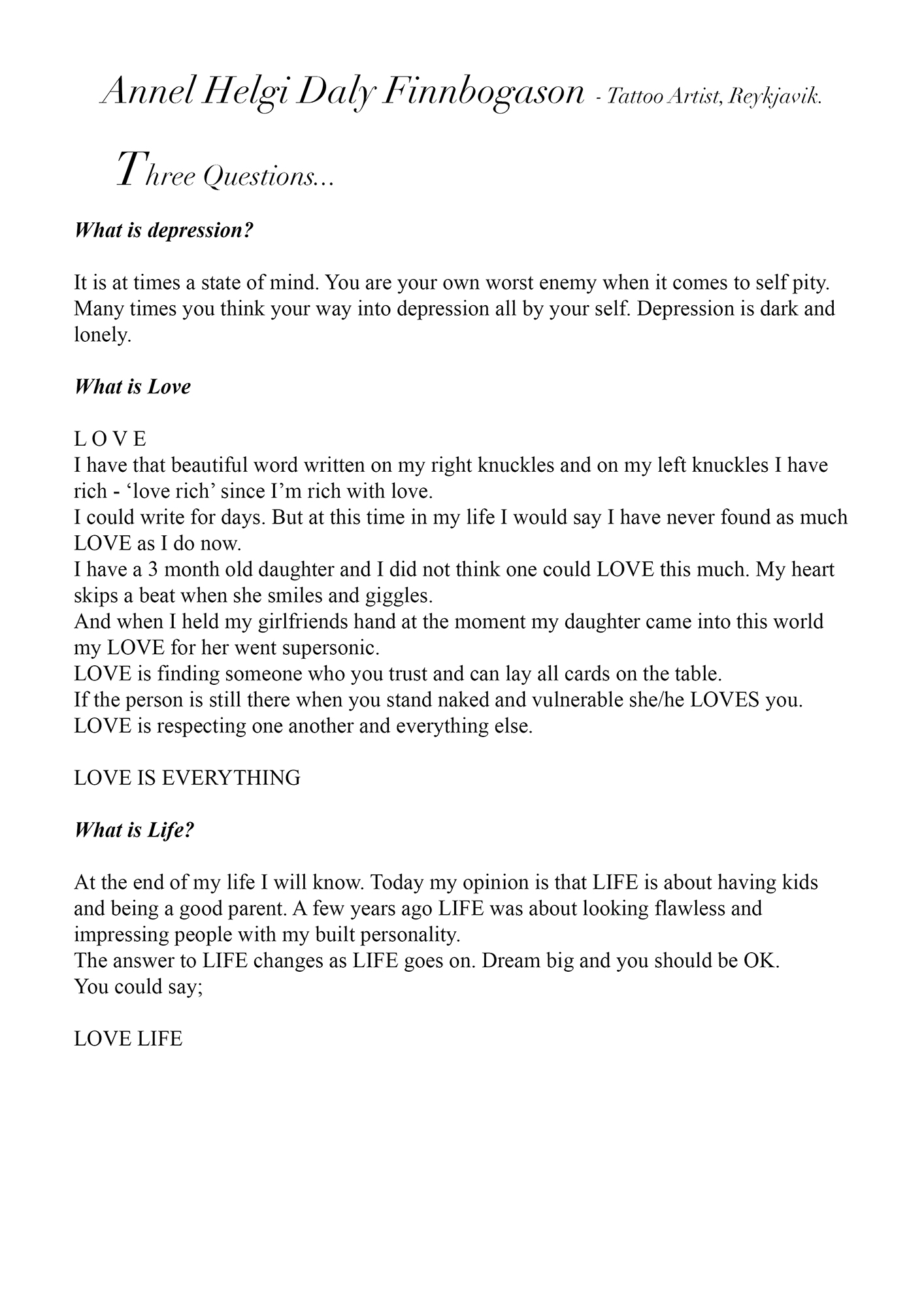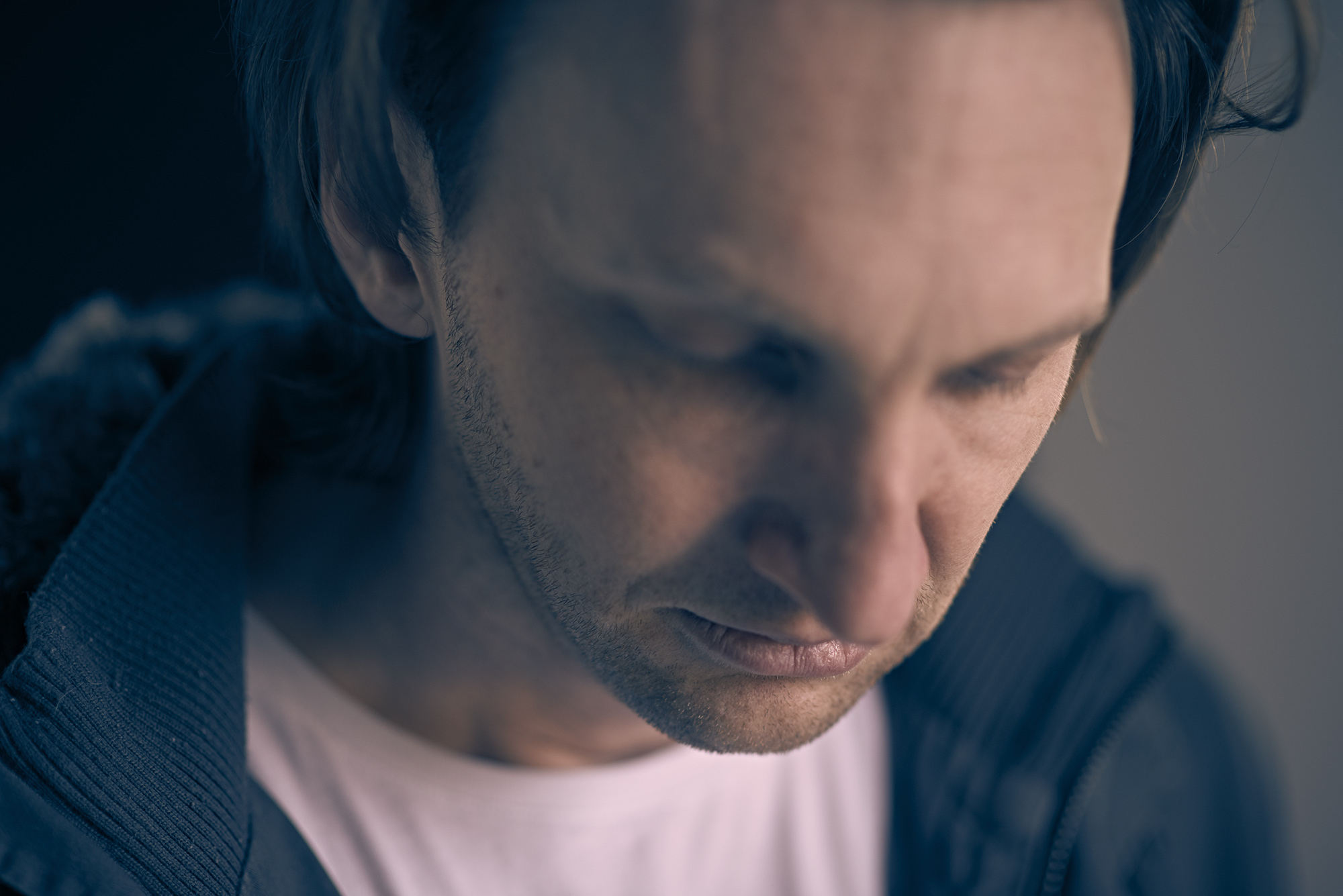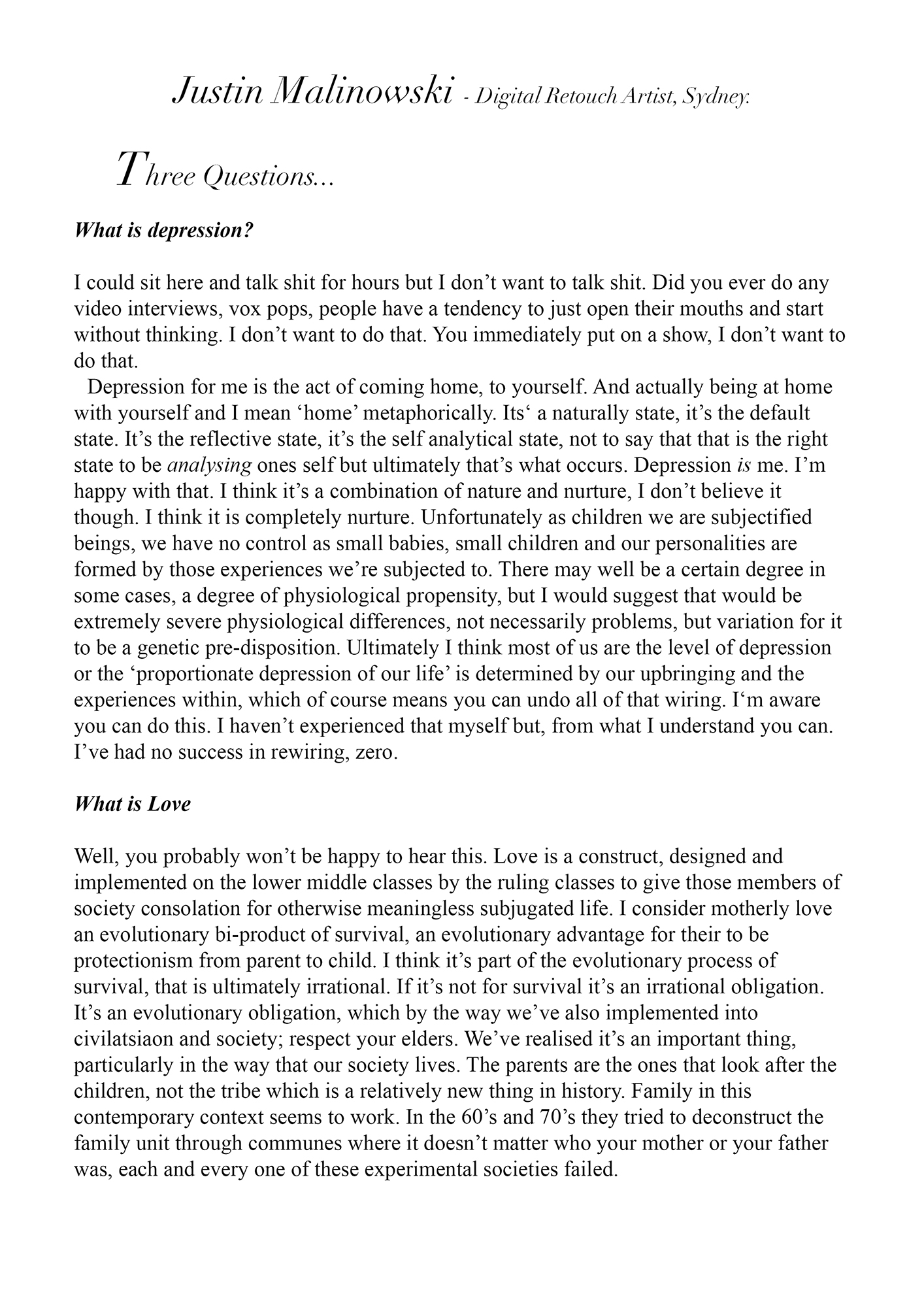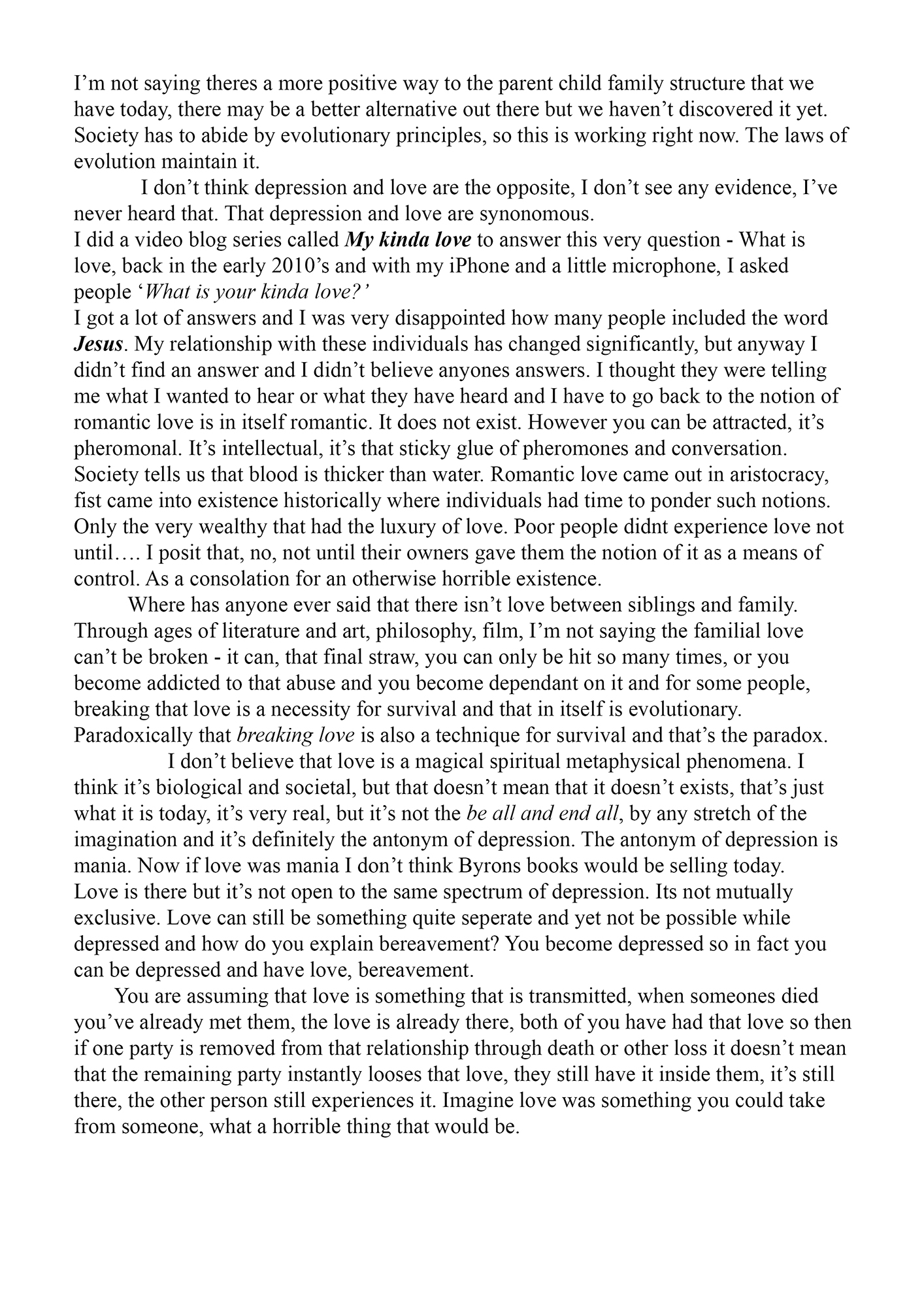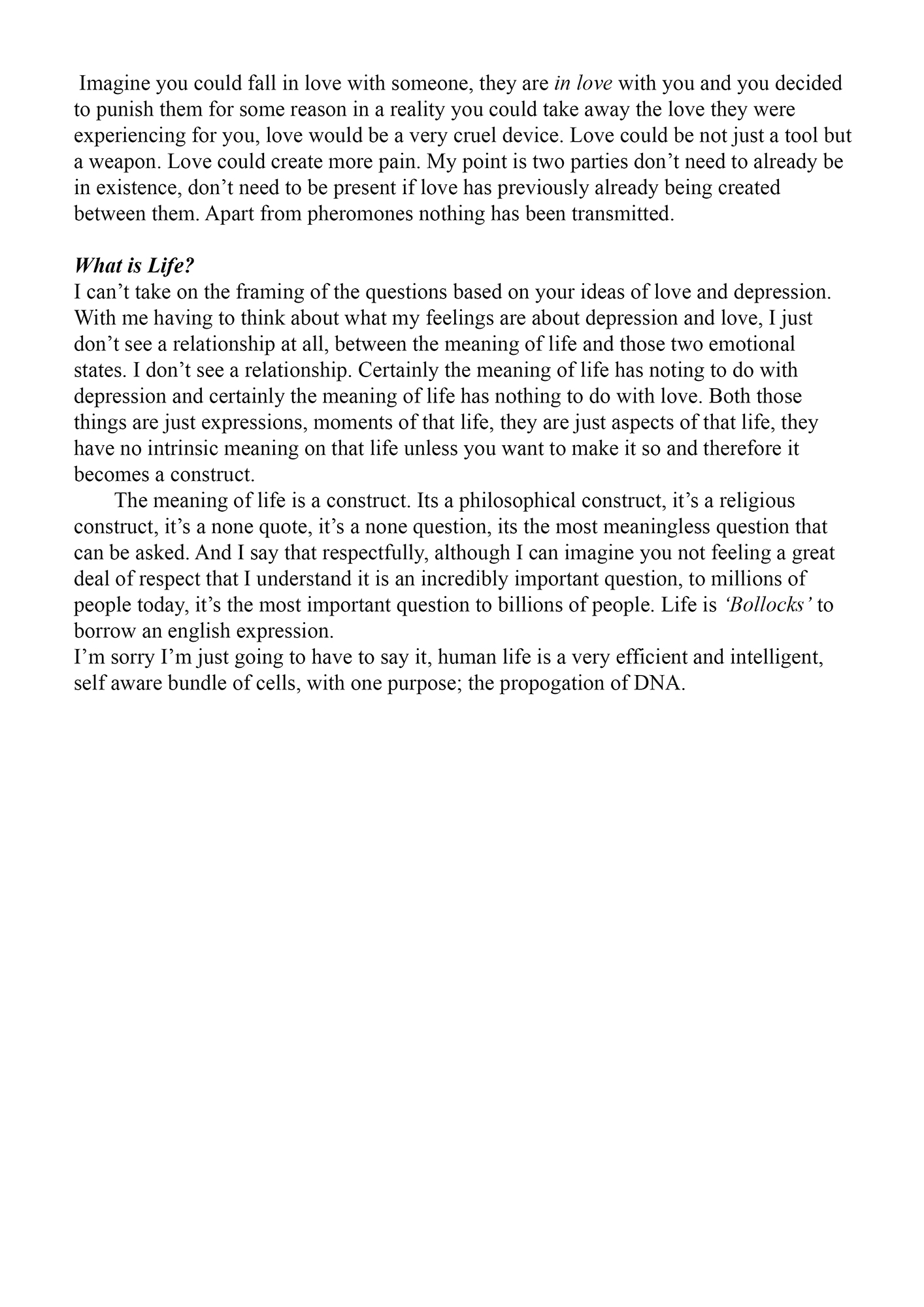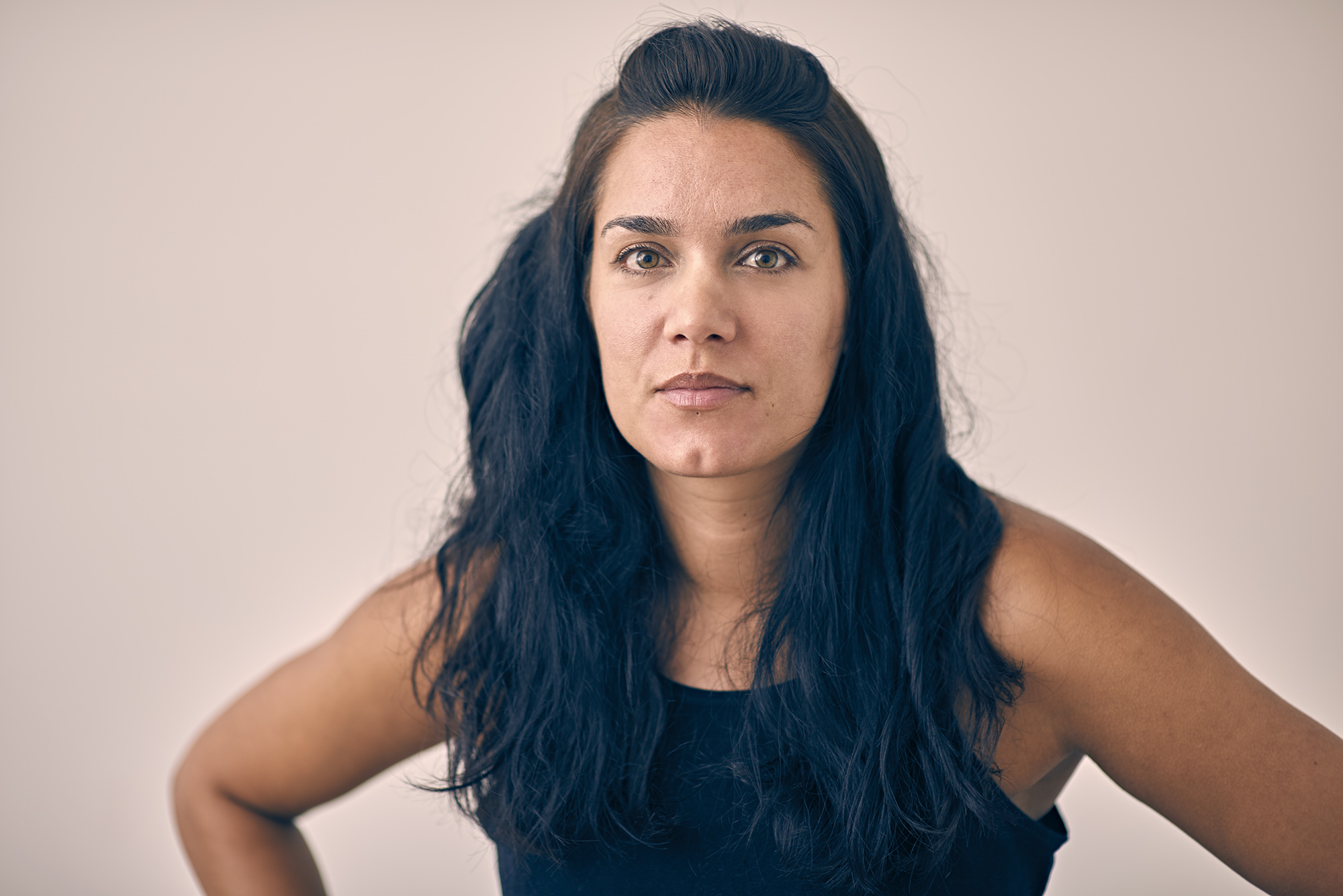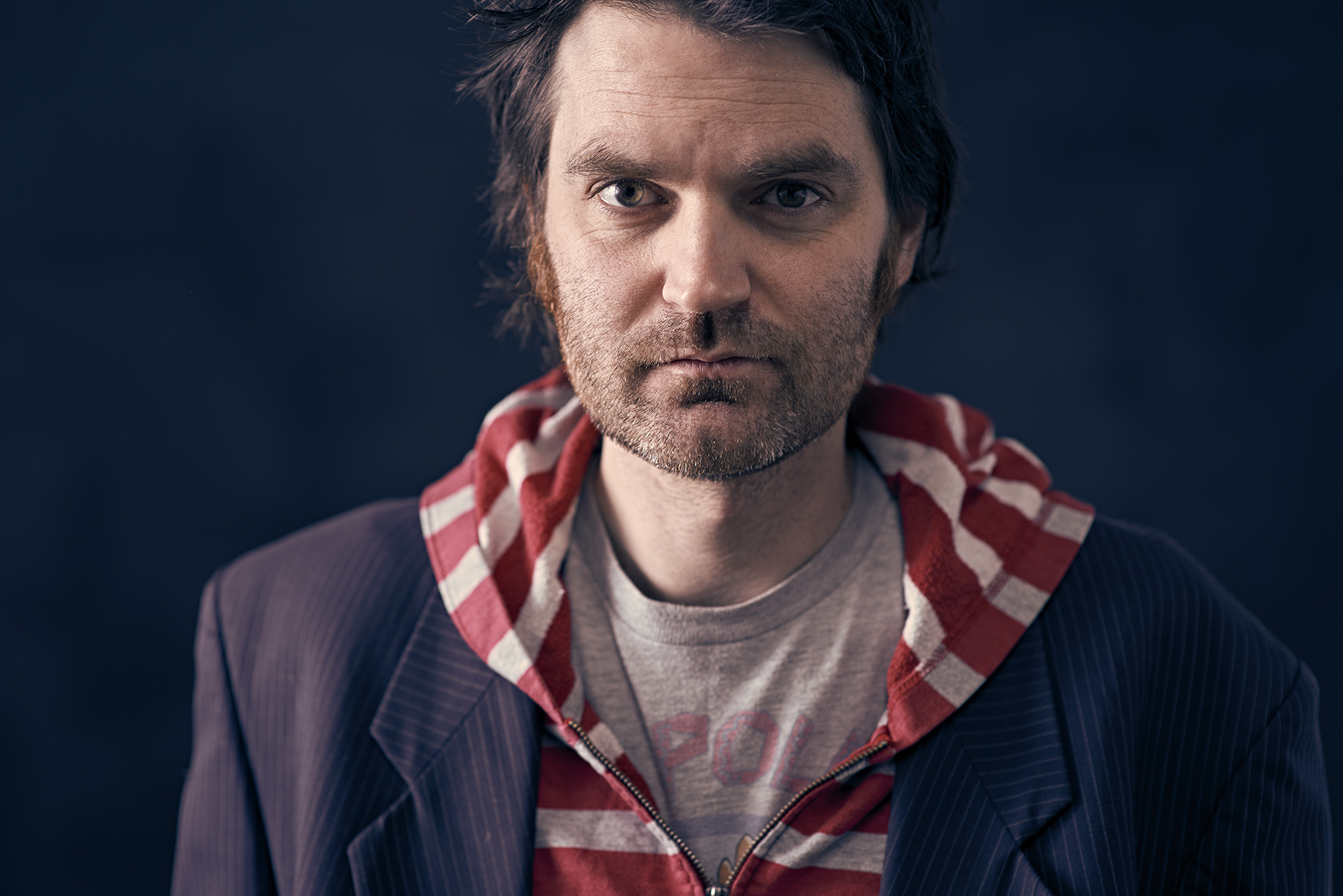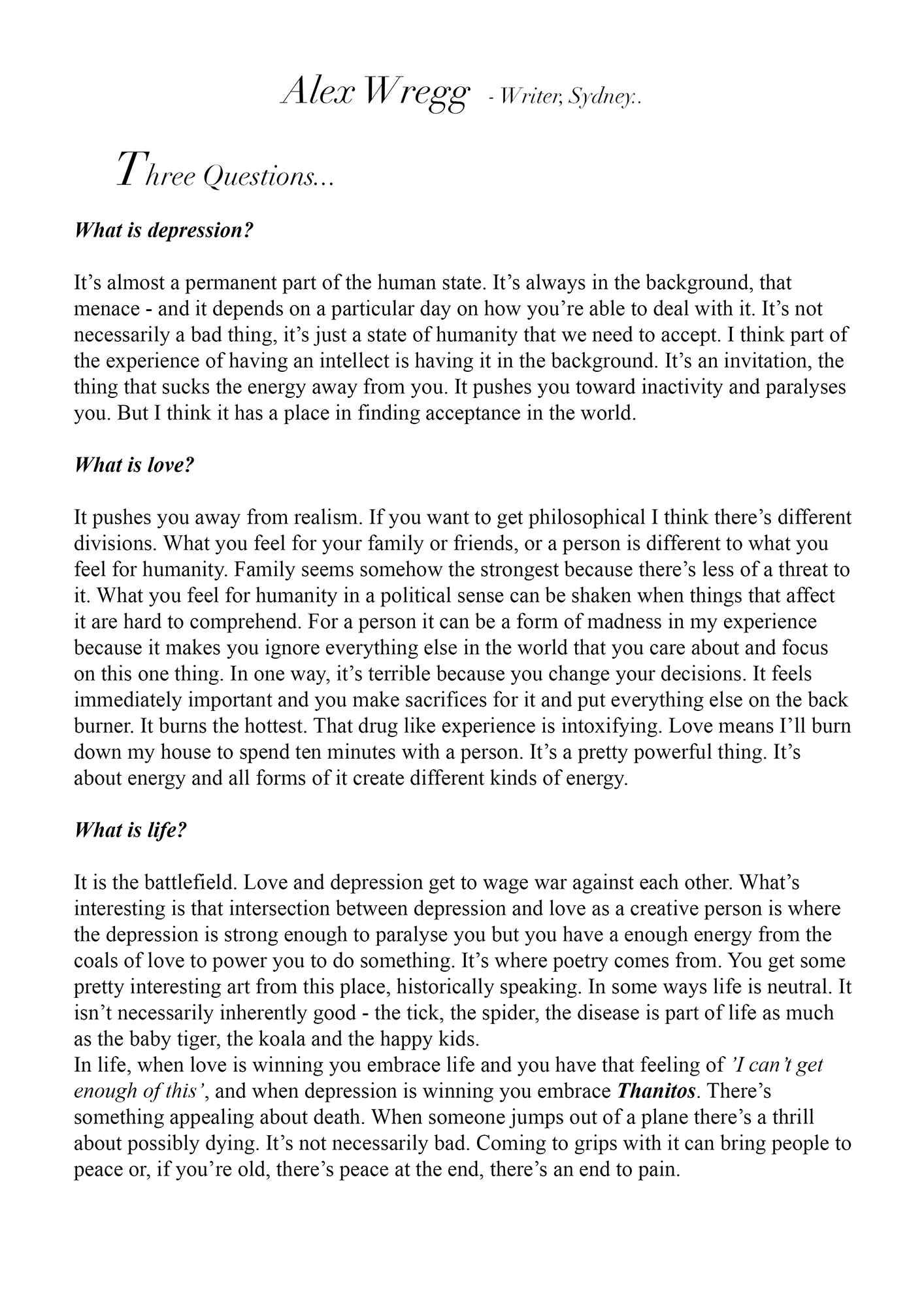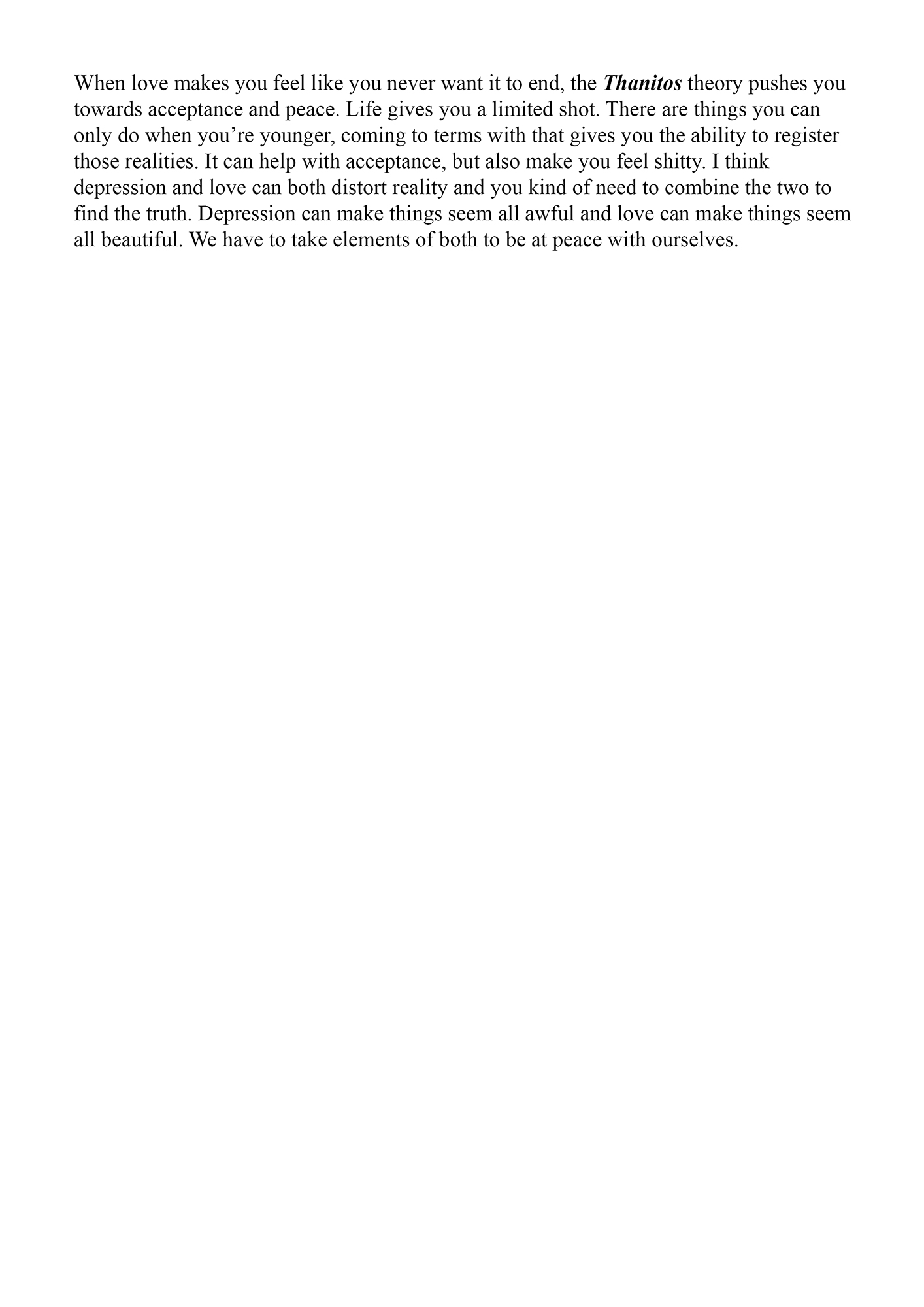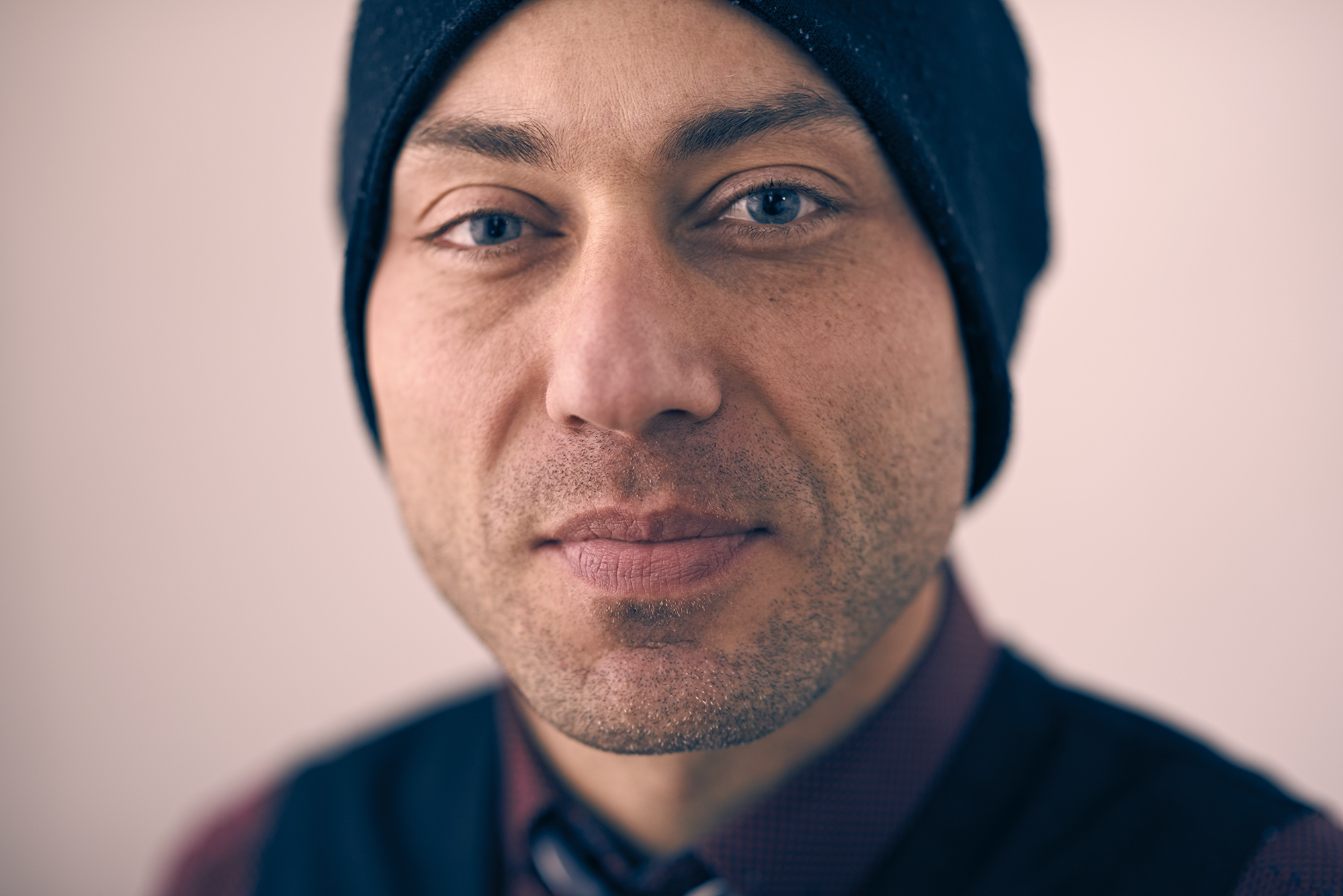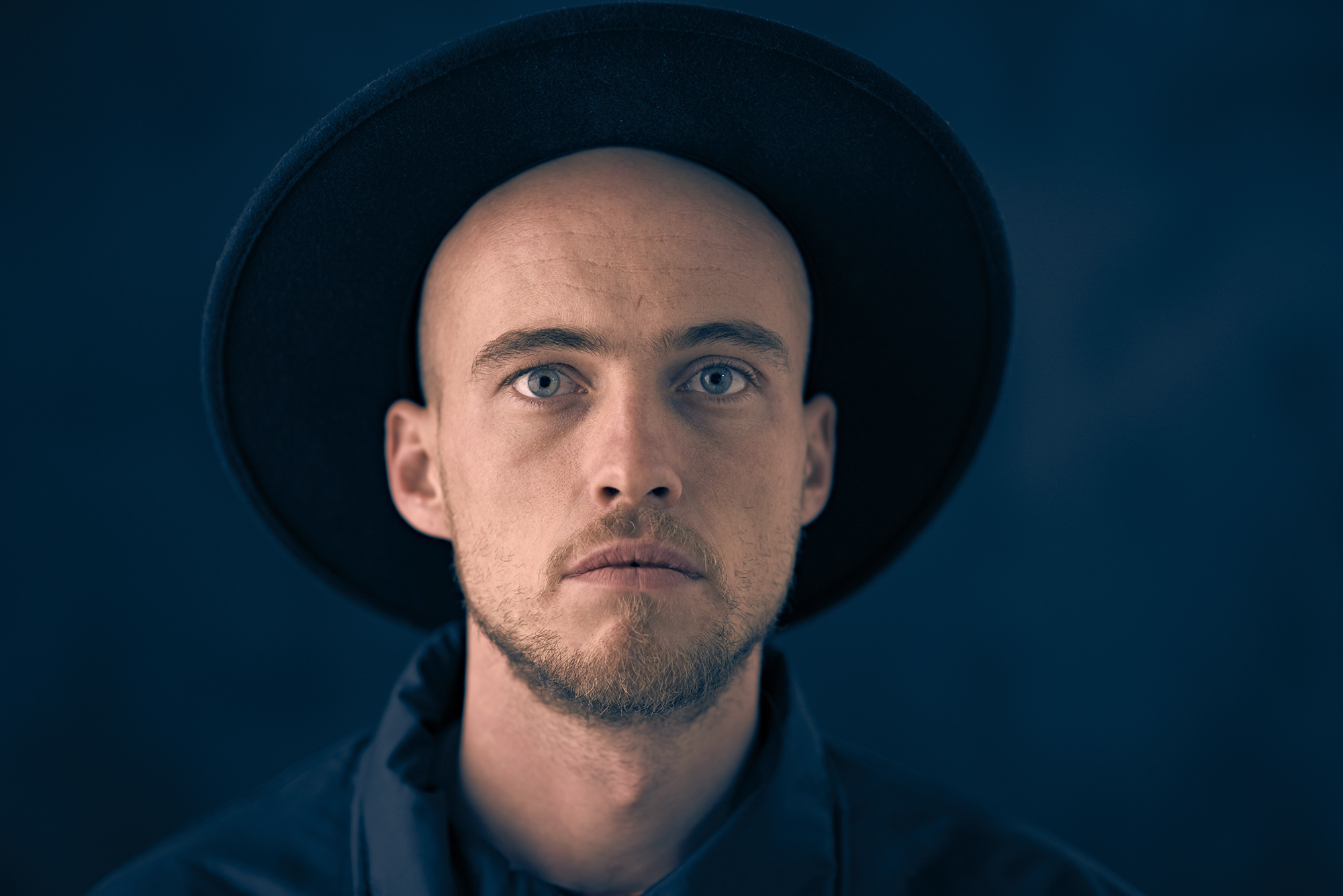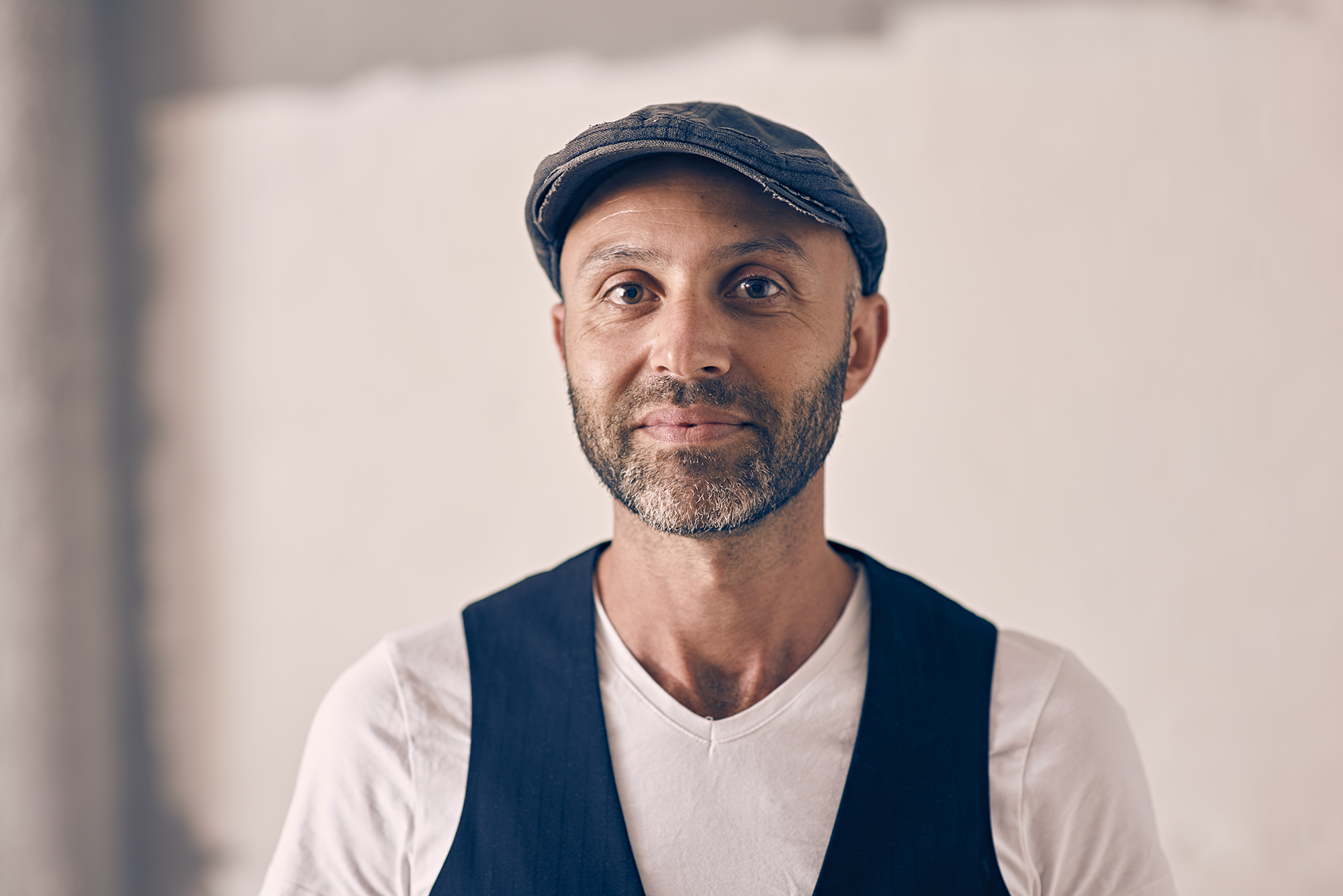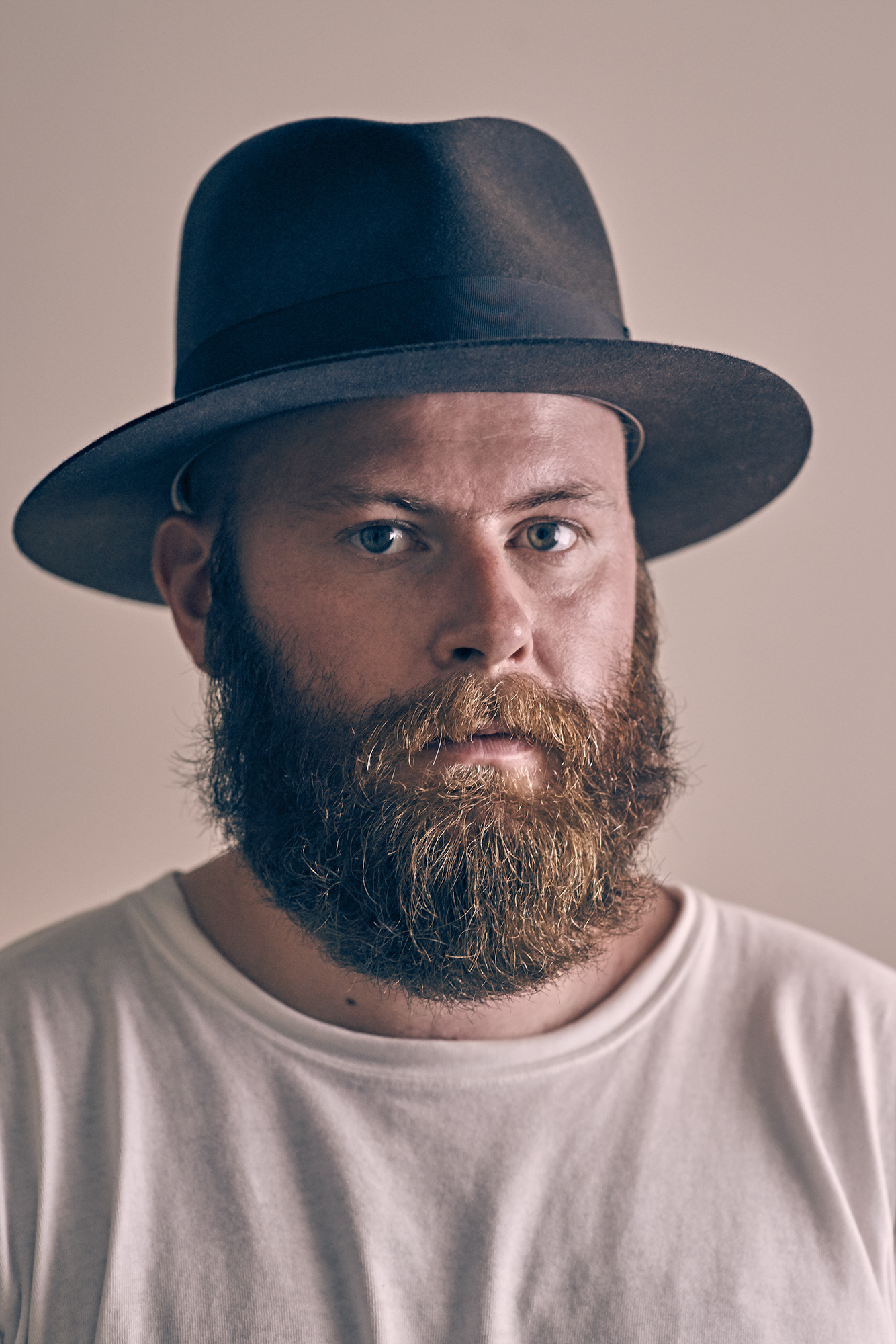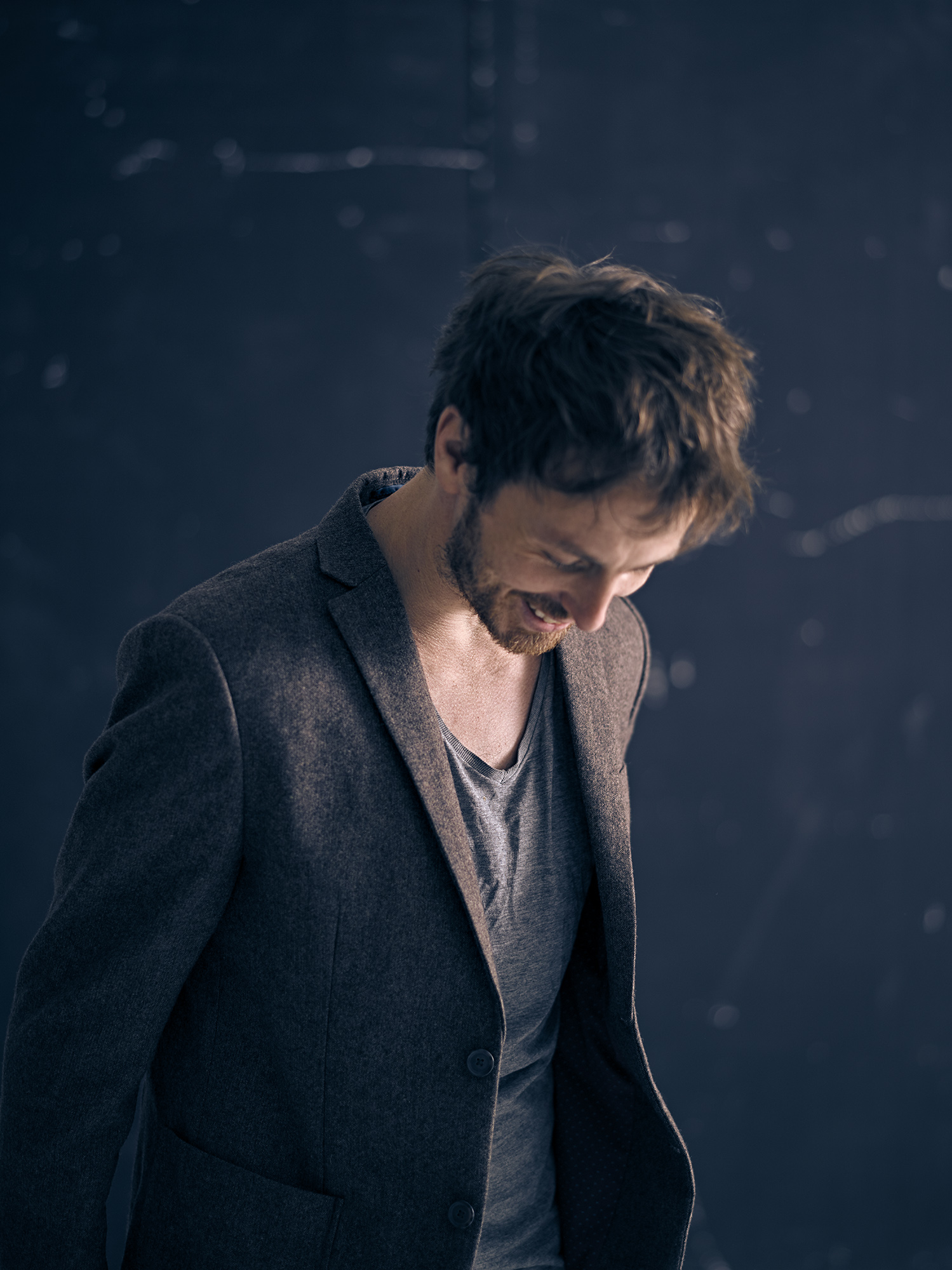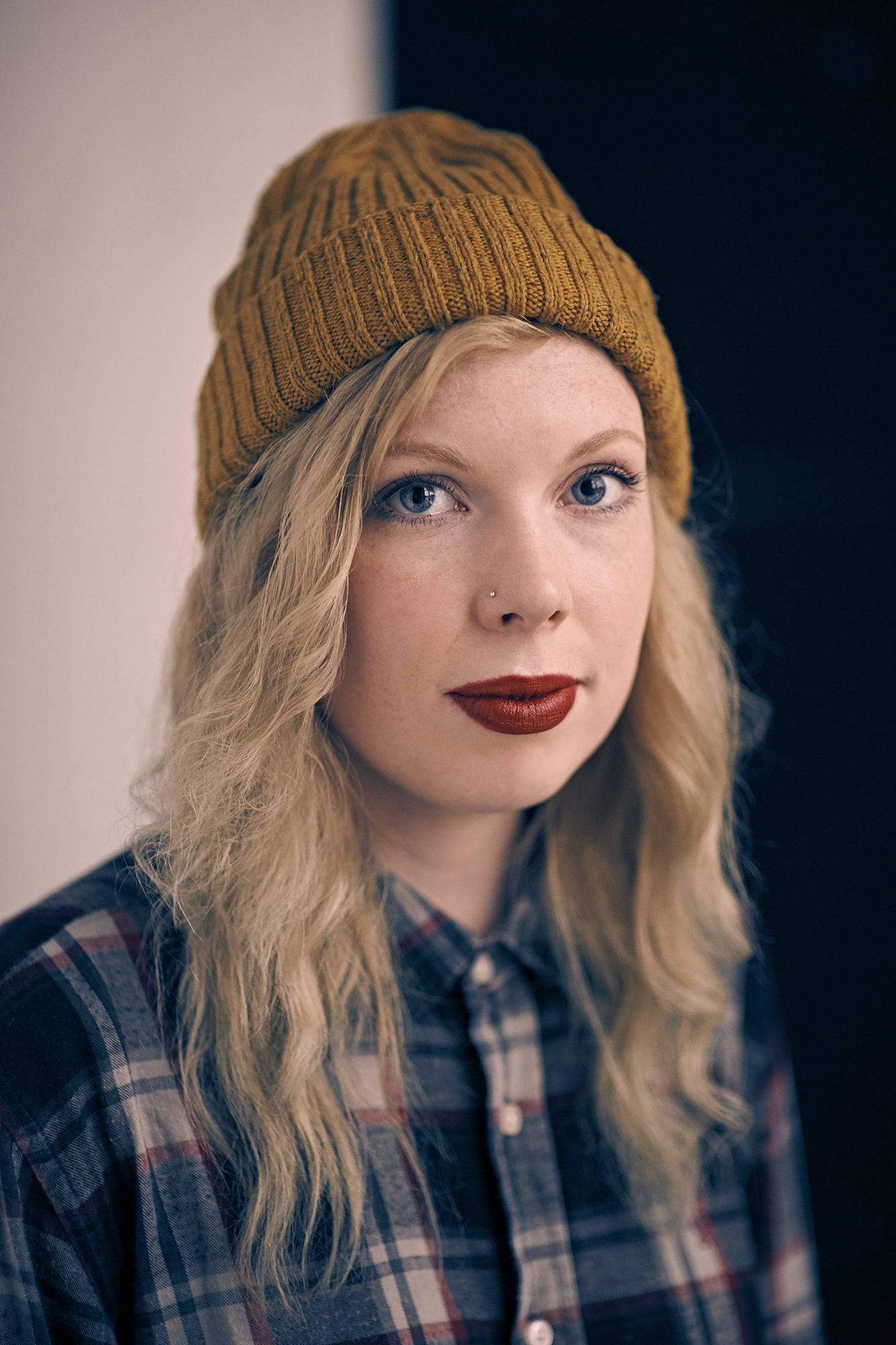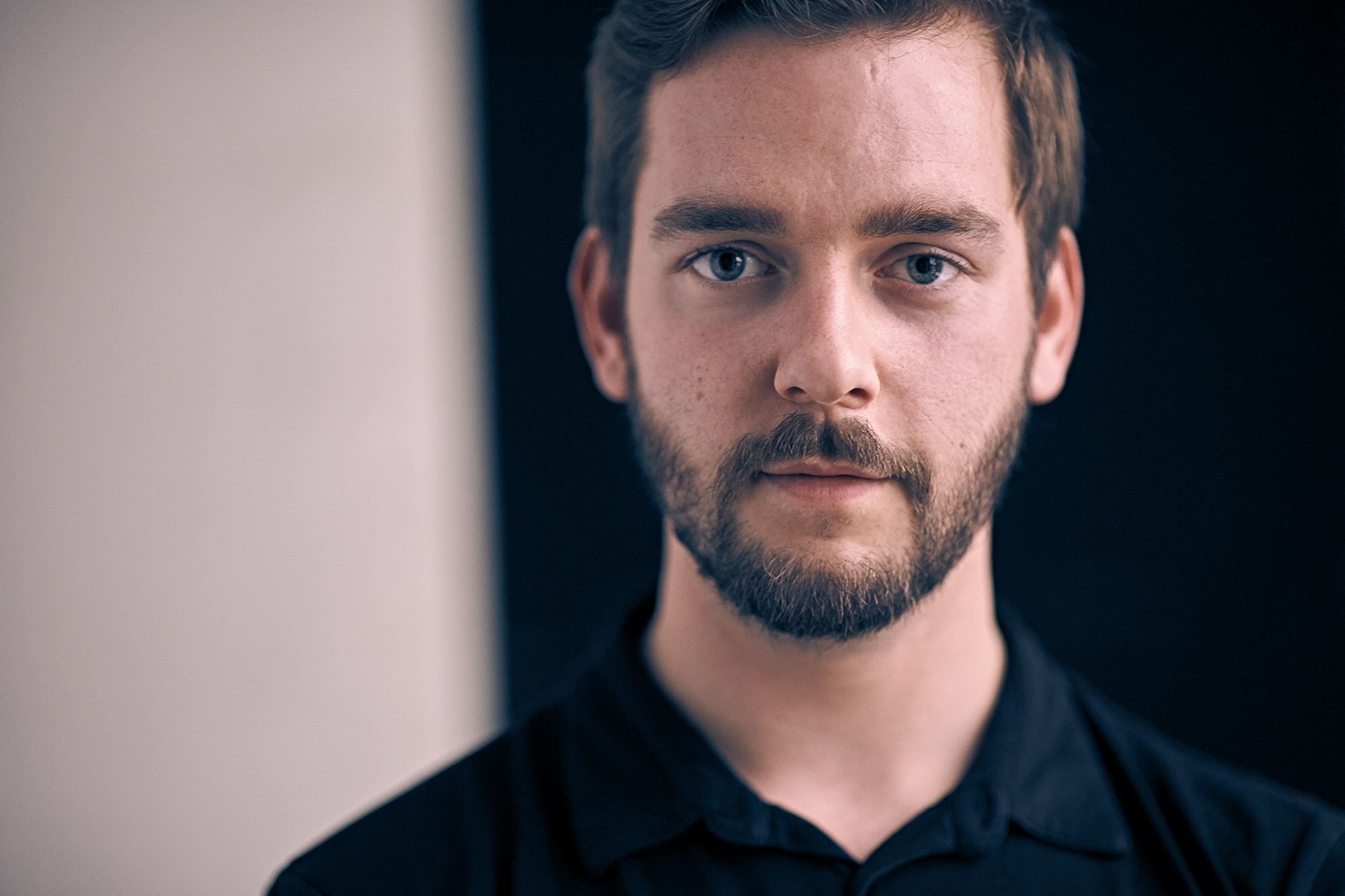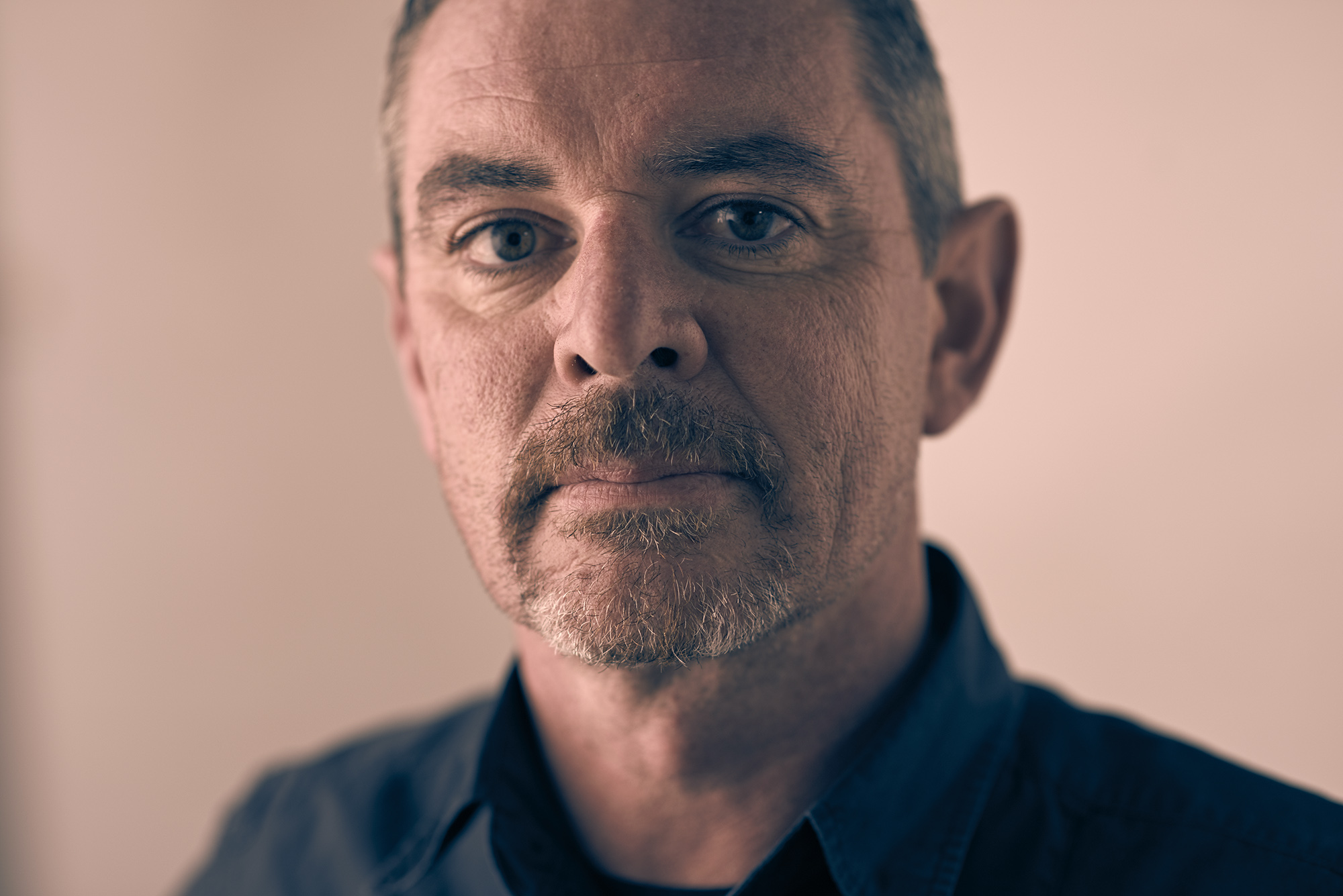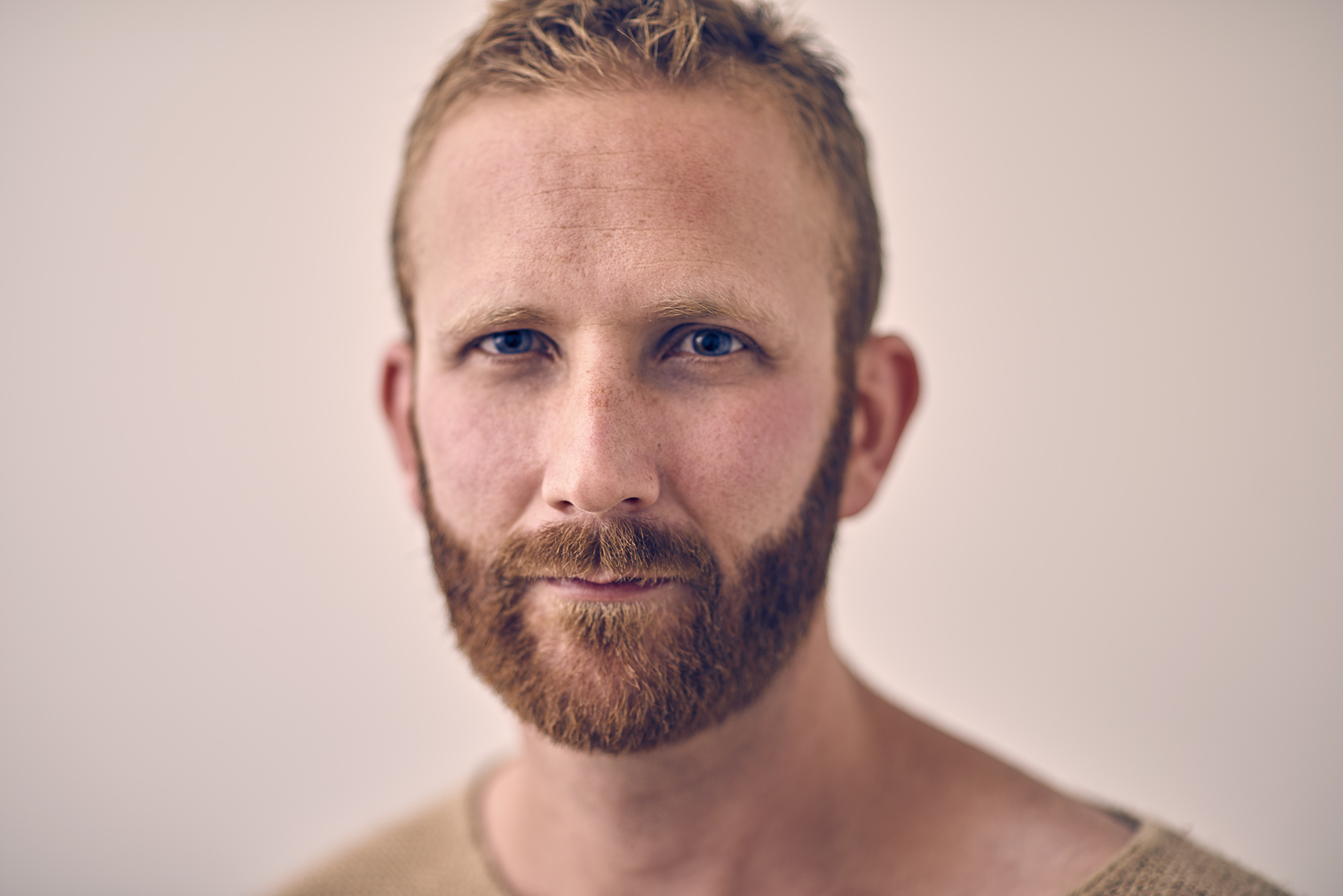Currently on Exhibition at Therapy, Prospect, Leeds.
17 Oct - 30 Nov 2019
Three Questions
Depression. Just reading that three syllable word has just had an instant affect on you. Do you wish to shy away and ignore it? Do you feel pity for the person writing about it? Would you prefer if this project was about something else? Can you relate to it? Does it bring up a time you have yet to heal? Does it bring up a time you have healed, or are healing right now? Does it make you angry? Sad? Empowered? Do you have a sense of empathy and compassion toward that word? What if this work was about Love in all its entirety? Would you feel differently? These are many questions.
In 2015 Ash Holdsworth had depression. He had had depression for the preceding three years. He noticed the majority of his friends also had depression. These weren’t just the odd sad days, this was a crippling, physical, mental and emotional affliction, a constant morose existence preventing people from working, eating, sleeping. He spoke at length with the people he knew were suffering. They shared stories and questions. He noticed that the stories of these people were completely different, that they had been through a tremendous amount of pain about completely unrelated things to each other. Yet, how they felt about these different experiences was identical. It was the same experience. They felt precisely the same things.
If the way we feel about our depression is a shared experience amongst human beings, then that in itself is a community. Then perhaps, the seemingly opposite is also true? That our healing of depression is a shared experience too? Uniquely personal, exactly like depression, but ultimatley a unifying reality experienced by all? ...Maybe the answer to our own questions lies in the very nature of opposites?
Ash didn’t know what the answer to his depression was, so he did what he had always done and asked other people. It took five years.
If how we feel about something is the component which links us all, then the stories of these individuals are unimportant. Vastly sacred to them, and the artist for their friendship, but irrelevant to a study of the subject of depression itself. Therefore, so too lengthy discussions about the individuals lives are also unnecessary and frankly, none of the artists business. So how then can one interview a person about their depression, without discussing their depression? …by interviewing them about depression itself - as a thing, as a reality, an experience, the emotion itself. If we make a thing conceptual, then we can talk about it at length, without being attached to it. It has no power over us. As simple as it sounds the first question to these interviews was born - ‘What is depression?’
If we have something which is un-wanted, then by definition we must also have something which is wanted. An equal opposite. Ash asked himself - conceptually;
‘What is depression?’
‘Depression is the absence of love.’
There is no love in depression, none whatsoever. There is no depression in love, none whatsoever.
So then the opposite of depression must be the presence of love. Just realising this Ash felt exactly that, the presence of love. And so realised that just conceptualising an opposite to ones depression - the presence of love, is love itself. We had our second question; ‘What is love?’
If these two states of being are equally opposite in nature, then we have a perpetual circle of opposing forces, each driving the other in an endless cycle. So then we must also have a third perspective to stabalise this. A way to step out of these realities, an observation about both that which is wanted, and that which is not wanted, a grounding force. What could possibly be bigger or outside of love and depression?
Life. Life is the space between birth and death in which both love and depression are experienced, it is both outside of it and inside of it. If we experience both these things which seem succinctly opposite, then what is the purpose for this? What is life?
In numerology ‘Three’ is the first number to which the meaning ‘all’ was given. It is the overcoming of duality. It is The Triad, being the number of the whole as it contains the beginning, a middle and an end. Three questions was born. He tried this simple idea with his friend, photographing a portrait and asking these questions as they did. When his friend pondered these questions and started to answer them, to himself, Ash saw before him, his friend who had suffered so terribly about something Ash could not help him with no matter how much he wanted to. And he saw his friends soul light up. In that moment, his friend healed himself. He answered his own depression with his own love.
Ash started the project in Bristol, England and travelled to Iceland, Australia and back again, interviewing people about their depression, meeting old friends and new.
If these subjects are too big for you at this moment, then there is nothing at all wrong with that. If you have not yet turned away, then I invite you to read these raw and un-edited interviews and join the community of being open to new emotions, by simply observing these peoples experiences, and your own.
I extend my deepest gratitude to all the people who took part in this project, and to all those suffering, I send the strength to look inside of themselves.



